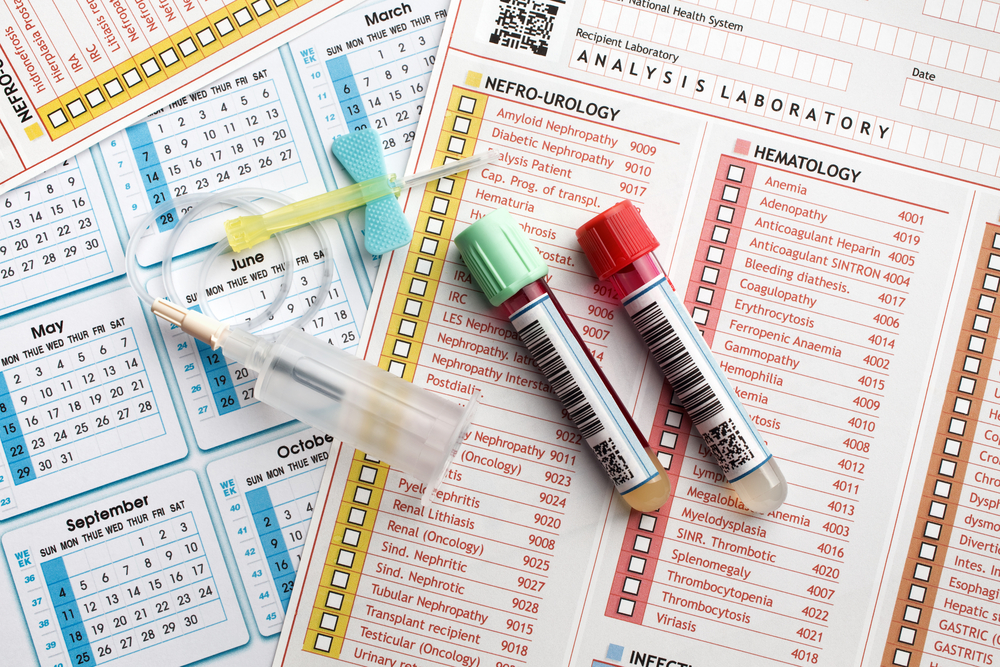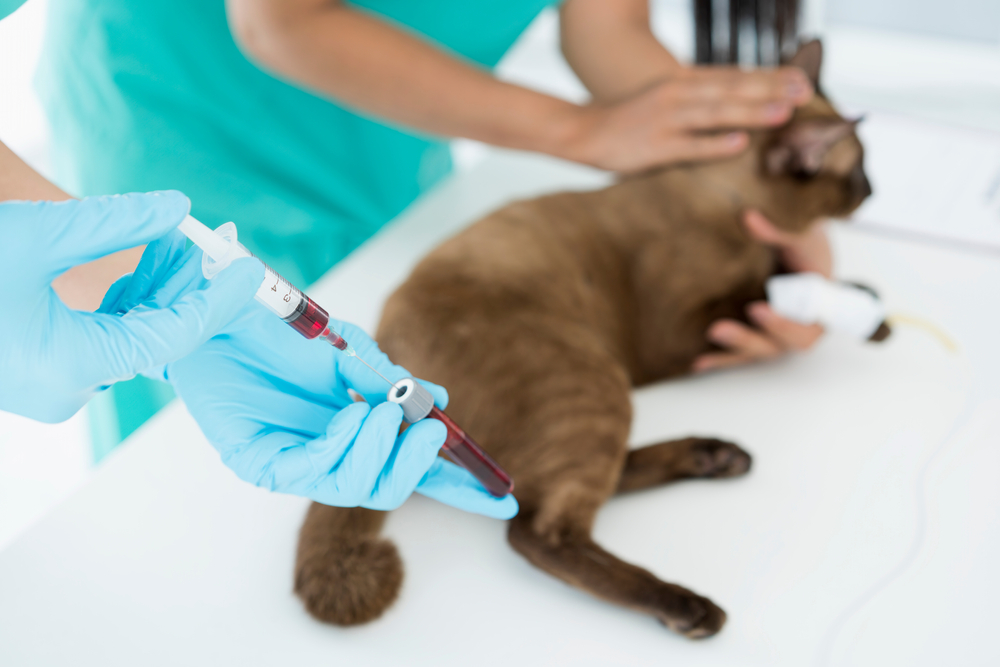Your pet’s blood work can provide important information about their health and, in some cases, these tests can indicate medical conditions before your pet exhibits signs. Blood work is a vital part of diagnosing illnesses, as well as ensuring your pet is healthy before certain procedures. When your pet has blood work run at Stack Veterinary Hospital, we want to ensure you can understand their results.
When does my pet need blood work?
The information that blood work supplies can be helpful in numerous situations, including:
- Annual wellness exams — Physical examinations can’t identify many issues that may affect your pet, and routine blood work is useful to catch conditions in the early stages when treatment is easier.
- Sick pets — When your pet is exhibiting signs that suggest they may not be feeling well, blood work is indicated to identify the problem.
- Before anesthesia — Blood work is performed before your pet is put under general anesthesia, to ensure they are healthy enough to undergo the procedure. The results also allow our veterinary professionals to know your pet’s liver and kidney health, which helps to determine a safe anesthetic dose.
- Before starting a new medication — Blood work is recommended before starting certain medications, particularly those metabolized by the liver or kidneys.
- Senior wellness exams — Senior pets are at higher risk for developing several age-related conditions, such as diabetes, and kidney and liver disease. Blood work can help determine if your pet is affected, so we can begin treatment and management strategies as soon as possible.
What does my pet’s complete blood count mean?
A complete blood count (CBC) analyzes your pet’s blood cells, and assesses your pet’s hydration status, red blood cell count, white blood cell count, clotting ability, and immune system response. A CBC provides detailed information, including:
- Hematocrit (HCT) — Also known as the packed-cell volume (PCV), this test measures the proportion of red blood cells in your pet’s blood. The hematocrit can detect if your pet is anemic, and assesses their hydration status.
- Hemoglobin (Hgb) — Hemoglobin is a protein in your pet’s red blood cells that carries oxygen to the body’s organs and tissues, and transports carbon dioxide back to the lungs. A low hemoglobin level can indicate anemia.
- Mean hemoglobin concentration (MCHC) — This is the average hemoglobin concentration in your pet’s red blood cells. Abnormalities in this value can mean your pet is anemic or has a vitamin deficiency.
- White blood cells (WBC) — This test measures your pet’s immune cells and can indicate abnormalities that mean certain diseases or infections.
- Granulocytes, lymphocytes, and monocytes (GRANS and L/M) — These are specific white blood cell types.
- Eosinophils (EOS) — This white blood cell type can indicate allergic or parasitic conditions.
- Platelet count (PLT) — Platelets are tiny blood cells that help your pet’s body form clots to stop bleeding. Abnormalities in this value can indicate bleeding problems.
- Reticulocytes (RETICS) — These are immature red blood cells, and high levels can indicate a regenerative anemia.
- Fibrinogen (FIBR) — Fibrinogen is a protein produced by the liver that helps blood clots form.
What does my pet’s blood chemistry mean?

A blood chemistry, or blood serum test, evaluates your pet’s organ function, electrolyte status, hormone levels, and more. A blood chemistry provides specific information, including:
- Albumin (ALB) — This is a serum protein that helps evaluate your pet’s hydration status, and can also indicate hemorrhage, and intestinal, liver, and kidney disease.
- Alkaline phosphatase (ALP) — ALP is an enzyme found throughout your pet’s body, especially in the liver, bones, kidneys, and digestive system. Elevations can indicate issues such as liver disease, Cushing’s disease, and active bone growth in young pets.
- Alanine aminotransferase (ALT) — ALT is an enzyme found primarily in your pet’s liver and kidneys. Elevations typically indicate liver damage, but do not point to a specific cause.
- Amylase (AMYL) — Amylase is a pancreatic enzyme that converts starch and glycogen to simple sugars. Elevations can indicate pancreatitis or kidney disease.
- Aspartate aminotransferase (AST) — AST is an enzyme mostly found in your pet’s liver and muscles. Elevations can indicate liver, heart, or skeletal muscle damage.
- Blood urea nitrogen (BUN) — BUN measures the amount of nitrogen in your pet’s flood that comes from the waste product urea. Elevations can indicate kidney, liver, or heart disease, as well as urethral obstruction, shock, or dehydration.
- Calcium (Ca) — Many conditions, including tumors, hyperparathyroidism, kidney disease, and low albumin, can alter serum Ca levels.
- Cholesterol (CHOL) — This is an essential structural component of animal cell membranes. Abnormalities in this value can indicate conditions, such as hypothyroidism, liver disease, Cushing’s disease, and diabetes, when other blood serum abnormalities are seen.
- Chloride (Cl) — This electrolyte is often lost when pets vomit, or have conditions such as Addison’s disease. Elevations can indicate dehydration.
- Cortisol (CORT) — This hormone is measured when testing for adrenal conditions, such as Cushing’s disease or Addison’s disease.
- Creatinine (CREA) — This chemical compound is a by-product of energy-producing processes in your pet’s muscles. CREA assesses kidney function, and can help distinguish between kidney and non-kidney causes of elevated BUN.
- Gamma glutamyl transferase (GGT) — GGT is an enzyme found mostly in your pet’s liver. Abnormal levels can indicate liver disease or excess corticosteroid use.
- Globulin (GLOB) — These blood proteins play an important role in liver function, blood clotting, and fighting infection. GLOB often increases during chronic inflammation, and in response to certain disease states.
- Glucose (GLU) — Your pet’s body uses this blood sugar for energy. Elevations can indicate diabetes, while low levels can cause collapse, seizures, and coma.
- Potassium (K) — This electrolyte is typically lost when pets vomit, have diarrhea, or urinate excessively. Elevations can indicate kidney failure, Addison’s disease, dehydration, or urethral obstruction, while high levels can cause cardiac arrest.
- Lipase (LIP) — This is a pancreatic enzyme that helps digest fat. Elevations can indicate pancreatitis.
- Sodium (Na) — This is an electrolyte typically lost when pets vomit, have diarrhea, kidney disease, or Addison’s disease.
- Phosphorus (PHOS) — Elevations in this mineral, found in your pet’s bones, can indicate kidney disease, hyperthyroidism, and bleeding disorders.
- Total bilirubin (TBIL) — Bilirubin is a pigment that is made during the normal breakdown of red blood cells. Elevations can indicate liver or hemolytic diseases, and the test can help identify bile duct problems and certain anemias.
- Total protein — This test measures the total amount of protein, including albumin and globulin, found in the fluid portion of your pet’s blood. This test assesses your pet’ s hydration status, and provides information about their liver and kidneys, and infectious diseases.
- Thyroxine (T4) — Decreased levels of this thyroid hormone can indicate hypothyroidism, while increased levels indicate hyperthyroidism.
Blood work is an extremely useful tool when diagnosing illnesses and determining your pet’s health status. If you would like to schedule a wellness exam for your pet, contact our team at Stack Veterinary Hospital, so we can ensure they are as healthy as possible.







Leave A Comment